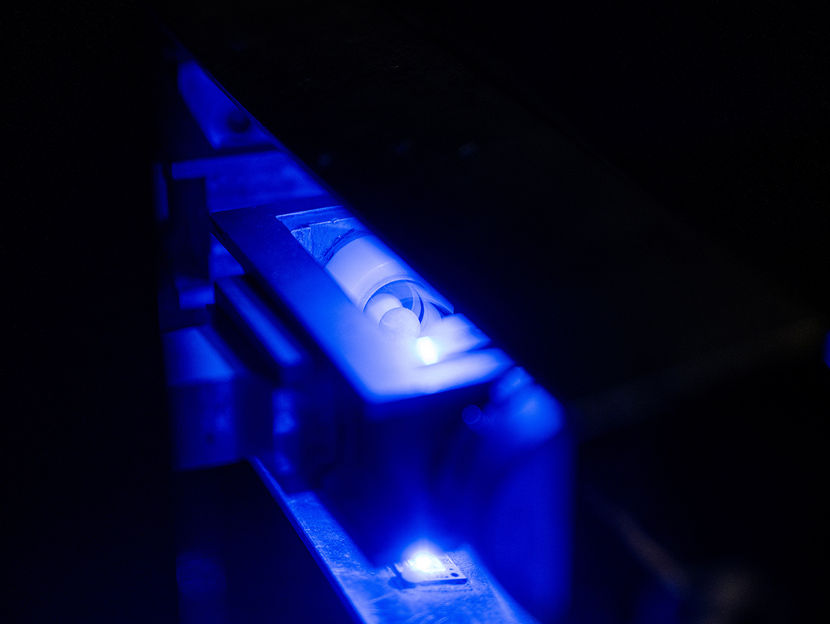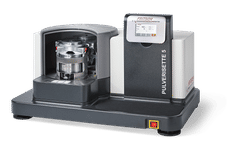Light and milling balls for greener chemical processes
Reactions without solvents
A combination of photochemistry and mechanochemistry saves 98 per cent solvent and 80 per cent energy in a number of reactions. What’s more, the process takes less time than it does in solution.

Light and mechanical energy interact in this reactor.
© RUB, Marquard
Light-driven chemical reactions so far were usually conducted with large amounts of solvents that are often toxic. By combining them with mechanical energy in ball mills, Professor Lars Borchardt’s team at the Chair of Inorganic Chemistry I at Ruhr University Bochum, Germany, has succeeded in carrying them out in the solid-state without resorting heavily to solvents. “This provides a sustainable alternative to established synthesis methods,” points out Borchardt. The researchers published their findings in the journal “Angewandte Chemie” on 24 February 2023.
Ball mills to replace solvents
Light is considered the ideal driving force of chemical reactions: it’s cheap, available in abundance and produces no waste. This is why light-driven, i.e. photochemical reactions are highly attractive for the production of chemical compounds. However, they are usually carried out in huge amounts of solvent. The latter are often toxic and generate hazardous waste in enormous quantities. Solid-state photochemical reactions without solvents could present an alternative. However, they have hardly been feasible so far, as they could only be mixed insufficiently and it was therefore not possible to scale them up to relevant quantities.
For photochemical reactions to take place, photons must first reach the starting materials. In order for the reaction to be quick and complete, it’s essential for it to be thoroughly mixed. In conventional reactions, this is ensured by the solvent: it dissolves the substances, makes them mobile and increases mass transport and diffusion. So far, no equivalent method has been available in the solid-state.
The researchers in Bochum used ball mills as reactors. Here, the starting materials are placed in vessels together with milling balls and shaken at high frequencies. This creates high-energy impacts that provide the mechanical energy for the reaction and thoroughly mix the substances. In a photoreactor that was specially adapted to the mill, the researchers managed to carry out the ball milling process under irradiation. This facilitated photo-mechanochemical synthesis of nanographenes in the solid-state.
Making reactions more sustainable
“This new process enabled us to carry out specific reactions and synthesise chemical substances in a much more sustainable way,” says Lars Borchardt. “We reduced reaction times by up to 56 per cent, while using 98 per cent less solvent than in equivalent syntheses done with conventional methods. Last but not least, the new photoreactor consumes almost 80 per cent less energy than conventional equipment.”
Original publication
Other news from the department science
These products might interest you
Most read news
More news from our other portals
See the theme worlds for related content
Topic world Synthesis
Chemical synthesis is at the heart of modern chemistry and enables the targeted production of molecules with specific properties. By combining starting materials in defined reaction conditions, chemists can create a wide range of compounds, from simple molecules to complex active ingredients.

Topic world Synthesis
Chemical synthesis is at the heart of modern chemistry and enables the targeted production of molecules with specific properties. By combining starting materials in defined reaction conditions, chemists can create a wide range of compounds, from simple molecules to complex active ingredients.































































